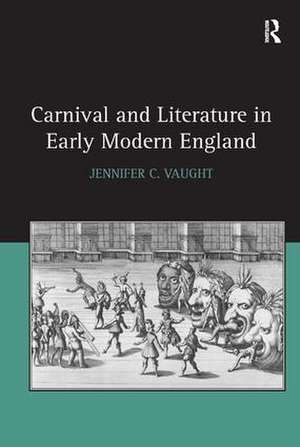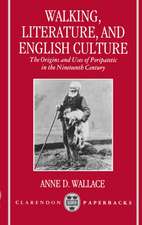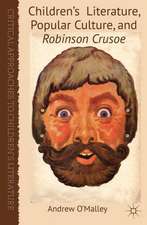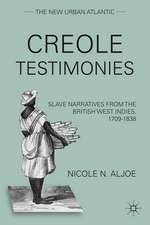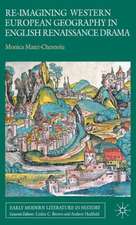Carnival and Literature in Early Modern England
Autor Jennifer C. Vaughten Limba Engleză Hardback – 28 iul 2012
| Toate formatele și edițiile | Preț | Express |
|---|---|---|
| Paperback (1) | 469.34 lei 6-8 săpt. | |
| Taylor & Francis – 25 noi 2016 | 469.34 lei 6-8 săpt. | |
| Hardback (1) | 1057.09 lei 6-8 săpt. | |
| Taylor & Francis – 28 iul 2012 | 1057.09 lei 6-8 săpt. |
Preț: 1057.09 lei
Preț vechi: 1289.13 lei
-18% Nou
Puncte Express: 1586
Preț estimativ în valută:
202.37€ • 211.15$ • 169.64£
202.37€ • 211.15$ • 169.64£
Carte tipărită la comandă
Livrare economică 13-27 martie
Preluare comenzi: 021 569.72.76
Specificații
ISBN-13: 9781409432081
ISBN-10: 1409432084
Pagini: 208
Dimensiuni: 156 x 234 x 13 mm
Greutate: 0.52 kg
Ediția:1
Editura: Taylor & Francis
Colecția Routledge
Locul publicării:Oxford, United Kingdom
ISBN-10: 1409432084
Pagini: 208
Dimensiuni: 156 x 234 x 13 mm
Greutate: 0.52 kg
Ediția:1
Editura: Taylor & Francis
Colecția Routledge
Locul publicării:Oxford, United Kingdom
Notă biografică
Jennifer C. Vaught is Jean-Jacques and Aurore Labbé Fournet / Board of Regents Professor in English at the University of Louisiana at Lafayette, USA.
Recenzii
'Carnival and Literature in Early Modern England is an exciting study of transatlantic scope and transhistorical span. Vaught's analysis highlights the cultural and historical specificity of carnival forms and productions, and the different ways they had been appropriated for divergent political ends, normative and transgressive. Juxtaposing early modern poetic and dramatic texts with St. George plays, mummery, street theater, and Mardi Gras productions, Vaught brings out the diverse cultural registers of the festive that would be available to Renaissance audiences, and she reimagines for readers today the traditional cultural literacies early modern writers and audiences brought to the texts and performances.' Joan Linton, Indiana University, USA 'This book offers the reader a rich Carnival of materials, sometimes upsetting ordinary expectations, but always providing a focused interpretation. The extensive footnotes sometimes turn the conventional page of print upside down, the upstart footnote threatening the dominant culture.' Renaissance Quarterly 'For a reader looking for an extensive bibliography on carnival and literature in early modern England and wide-ranging observations on a series of texts, this book could be a useful resource.' The Spenser Review 'This is, certainly, a fascinating study, which traces carnivalesque themes in English literature through some expected, and some far from expected, times and locales; it is highly recommended.' Parergon 'Vaught does a fine job of demonstrating the influence of festive practice on some of the most canonical works of English Renaissance literature; her book will be of keen interest to students of early modern popular culture.' Studies in English Literature 1500-1900 'Vaught has produced a study of considerable scope and ambition, and her readings of the texts collectively illustrate the profound extent to which carnival themes and motifs permeated the literature and culture of early modern England.' Seventeenth-Century News
Cuprins
Introduction; Chapter 1 Grotesque Imperialists, Alien Scapegoats, and Feasting in Marlowe's Doctor Faustus and The Jew of Malta and Shakespeare's Merchant of Venice; Chapter 2 Protestant Spiritualism, English Nationalism, and Holiday Festivity in Spenser's Shepheardes Calendar and The Faerie Queene; Chapter 3 Carnival, Economics, and Social Mobility in Dekker's Shoemaker's Holiday, Shakespeare's Twelfth Night and The Winter's Tale, and Jonson's Bartholomew Fair; Chapter 4 The Decline of Carnivalesque Egalitarianism: Milton's Comus, Herrick's Hesperides, and Mardi Gras Appropriations of Renaissance Texts in the American Deep South;
Descriere
Carnival and Literature in Early Modern England explores the elite and popular festival materials appropriated by Renaissance writers in a wide range of dramatic and non-dramatic texts. Jennifer Vaught focuses on how Shakespeare, Spenser, Marlowe, Dekker, Jonson, Milton and Herrick incorporated the carnivalesque in their works. Further, she demonstrates how these texts were used-and misused-by later writers and inventors of spectacles, notably Mardi Gras krewes in New Orleans.
